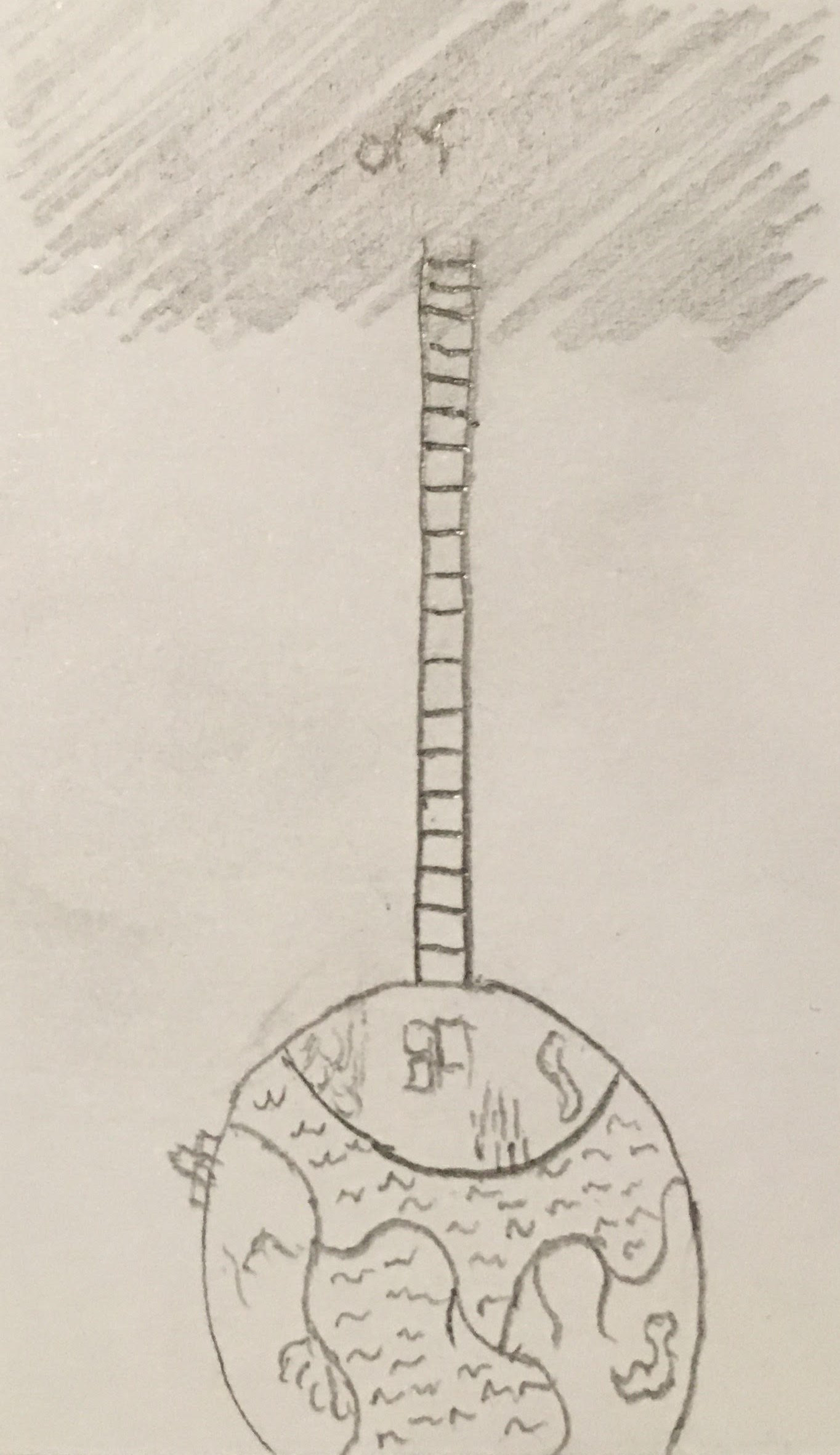The Philosopher's Fallacy
Climb toward greatness. Climb toward nothing.
Straight as an arrow, higher than the sky. Firm as the ground I stand upon.
It truly is a magnificent ladder.
The Philosopher craned his neck back, and tried to see where the structure ended. An impossible task. The only way to know would be to climb. Good. He had spent too much time on the ground. Mired in the simple and unexplored. The ladder called to the adventurer hidden deep within him. Urged him to embrace the unknown.
The first rungs were the most jarring. With a few upward steps, the Philosopher learned simple truths about the world. The Philosopher was a short man by stature, but now he loomed above the heads of others. The Philosopher was a shy man by nature, but now he grew the creeds of brothers. People looked up to him, and thought him to be important.
Which he was.
As he climbed higher, he came to understand the pacings of people beneath. He taught them to move more efficiently, to cooperate to accomplish their goals. To act in equal accordance with one another, and prosper. When the people were thirsty, he pointed them towards distant water. When they were hungry, he pointed them towards fertile land. The Philosopher saw invading armies before any other. He felt the rain before it touched the ground. All who interacted with him came out for the better, and he was valued greatly in turn.
But the Philosopher was not satisfied. He climbed higher, until the people were specks. As he climbed, he changed. He now studied the nation, for he could not see the people. He now looked to the future, for he could not see the present. He felt the winds of storms that may never come, and saw the sight of lands untouched by mankind. The mountains no longer obscured his vision, the clouds were no longer beyond his reach. So the people valued him even more highly, and thought him to be important.
Which he was.
It was the Philosopher alone who could answer the unanswerable. It was he alone that could tell you the colors of the sky. He steered great swaths of people away from distant catastrophe, and guided them towards the seemingly unobtainable. For it was only he that could see the path that led there.
Still, the Philosopher continued to climb. Higher and again, until the sky turned black. Until the Earth faded, and he breathed the blankness of the void. He climbed, and he climbed, until even the ladder itself had faded from sight. Then he drifted, directionless. Silent. Blind. The Philosopher made the void into what he pleased, for it could do nothing to contradict him. And the people looked up to him, in the deep of the sky, and they thought to themselves: ‘None have traveled higher than this man. Surely he is the greatest among us.’
But he was not.
For what could this Philosopher reveal to us? He could not see the Earth, nor could he see its people. Nor could he feel the breeze, nor touch the skies. His sight was of nothing but himself. Is not the lowliest of us higher than he? For the groundwalker sees both the grass and the people and himself. The buried feel the soil and learn its secrets. But this Philosopher has turned away from everything which he might know. He has climbed until there was nothing to grasp, and why should we call this an achievement?
The Philosopher turned his head in answer. Pale, unseeing eyes wandered, and he spoke in steady rhythm.
Can you not see. Now I have achieved the wholeness of my mind. What was the aim of my journey. What was the goal of my climb. It was to become this. To leave behind the world and cut my ties from it. To depart, that I may become. For the ladder leads away, always away, and the destination can be no place but nowhere. It can lead only to the absence of all. Purity of self.
Purity of I.
So the Philosopher taught people of humility, but his teachings were meaningless, because they did not account for the world. And the Philosopher taught people of kindness, but his teachings were meaningless, because they did not account for the world. And the Philosopher taught people of progress, and beauty, and he predicted doom and suffering, and he spoke, and he spoke, and he spoke, and it was all meaningless, because it was merely the Philosopher. It was merely I, and nothing more.


